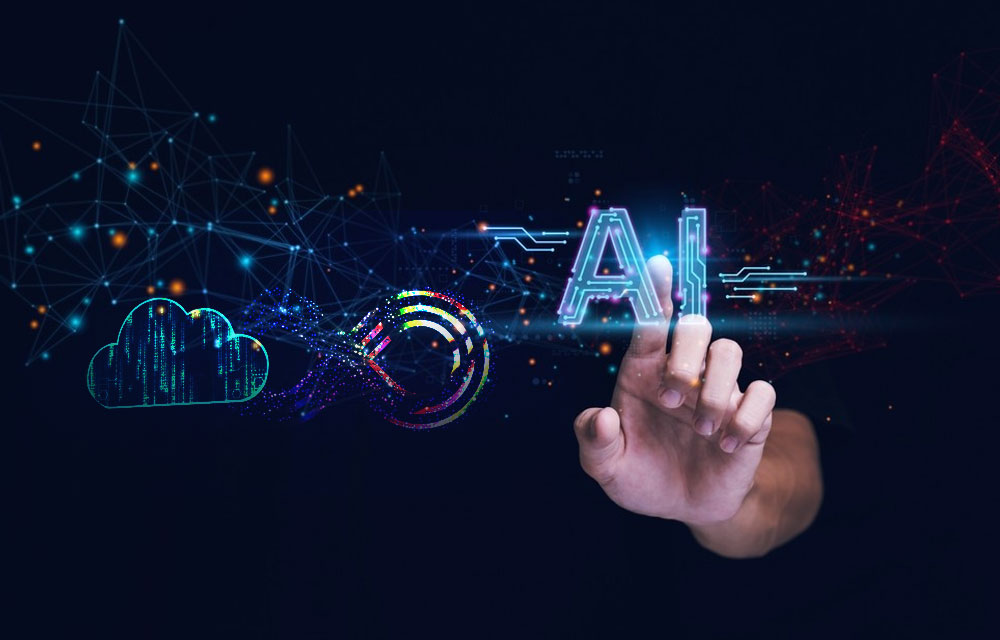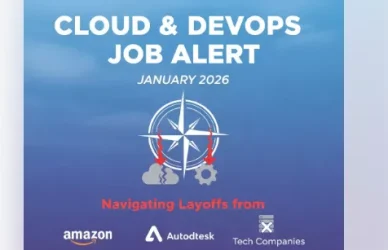Artificial Intelligence has advanced at an unprecedented pace, and its impact is now being felt across every sector—especially in IT. With generative AI tools like GitHub Copilot and platforms like Harness gaining popularity, many professionals in the Cloud and DevOps space are asking: Will AI replace my job?
The truth is more nuanced. While AI is reshaping DevOps roles, it’s not replacing them. Instead, it’s automating the mundane, augmenting decision-making, and creating new opportunities. In this article, we’ll separate fact from fear and explore how Cloud and DevOps careers are evolving in 2025.
The Evolution of AI in IT and DevOps
AI’s integration into IT operations—especially DevOps—is not entirely new, but it has accelerated drastically since 2022. Today, we’re seeing AI-driven CI/CD pipelines that suggest and even write deployment code, machine learning models for anomaly detection in logs and metrics, and AI-powered security scanners that identify vulnerabilities before code reaches production. From improving code quality to enabling proactive monitoring, AI is being embedded at every layer of the DevOps lifecycle.
Why AI Won’t Kill DevOps Jobs — But Will Transform Them
One common myth is that automation equals elimination. But DevOps is not just about writing scripts or spinning up cloud infrastructure—it’s about culture, collaboration, observability, and continuous improvement.
Complex systems still need human oversight to interpret nuanced errors or make business-aligned decisions. AI can’t replace the cultural and communicative role DevOps plays between development and operations teams. And while tools like GitHub Copilot may write code, they rely on expert guidance and review to ensure relevance, security, and compliance.
The future belongs to DevOps professionals who learn to work with AI, not fear it.
AI-Enhanced DevOps: What It Looks Like in 2025
Rather than replacing jobs, AI is being embedded into existing workflows to make DevOps smarter and faster. CI/CD pipelines are now enhanced with AI-driven recommendations on workflows and code optimizations. AIOps platforms like Datadog and Dynatrace detect issues before they escalate, while AI assistants integrate with Slack and Microsoft Teams to offer real-time resolutions, code fixes, and escalation pathways. This leads to reduced toil and faster feedback loops—hallmarks of elite DevOps teams.
Cloud Automation Trends Driven by AI
AI has become integral to managing the complexity of modern cloud environments. Infrastructure as Code tools like Terraform are integrating with AI plugins that can generate or validate configurations. Kubernetes clusters are being optimized using AI-based resource management that helps reduce overprovisioning. Meanwhile, FinOps platforms now use AI for cost predictions, anomaly detection, and automated budget enforcement. Cloud-native operations have never been more efficient, thanks to AI’s contextual intelligence.
Top AI Tools Used in DevOps Workflows
AI-enhanced tools like Harness automate CI/CD pipelines with performance insights and anomaly detection. GitHub Copilot assists in writing infrastructure scripts and application code. Firefly tracks cloud asset drift using AI, and Dynatrace provides full-stack observability with predictive diagnostics. These tools empower DevOps engineers to shift their focus from repetitive tasks to high-value innovation.
Areas Where AI Replaces Repetitive Work
AI is replacing tasks—not people. Script writing for repetitive deployment tasks or infrastructure provisioning, log analysis for pattern recognition and alerting, security testing through static and dynamic analysis, and load testing and performance tuning are all being partially automated. This gives engineers more time to solve complex problems and drive system improvements.
Skills That Will Future-Proof DevOps Engineers
To stay competitive, DevOps professionals must embrace AI literacy by understanding ML workflows, prompt engineering, and AI-assisted tooling. Mastery of cloud-native technologies such as Kubernetes, serverless architectures, and Infrastructure as Code is critical. Developing expertise in Site Reliability Engineering and DevSecOps also adds long-term value. Those who blend cloud proficiency with data-aware decision-making will remain in high demand.
Real-World Case Studies: DevOps + AI in Action
Netflix uses AI models to predict traffic spikes and auto-scale services. Uber employs machine learning for intelligent deployment decisions and canary testing. Capital One integrates AI into its cloud governance strategies, ensuring compliance with minimal manual input. These cases demonstrate that AI is a catalyst—not a competitor.
DevOps Job Market Outlook in 2025
According to data from clouddevopsjobs.com and LinkedIn, the demand for DevOps professionals is growing—especially for those with hybrid AI skills. Roles such as Platform Engineer, DevOps Engineer with ML Ops expertise, and AIOps Engineer are on the rise. Certifications like Google Cloud AI and AWS Certified DevOps Engineer are becoming critical differentiators.
New DevOps Roles Emerging Due to AI
AI is spawning entirely new DevOps roles. AIOps Engineers now specialize in AI-driven observability and incident management. AI-SREs focus on predictive reliability, while AI-DevSecOps Analysts blend security, governance, and machine learning. These new roles offer high salaries and dynamic career paths.
Myths vs Reality: Debunking AI Fearmongering
A few myths need to be put to rest. The idea that AI will replace DevOps engineers is false—strategic thinking, collaboration, and culture cannot be automated. Another misconception is that only coders are safe from AI—every tech role is evolving, including software testers and sysadmins. And it’s never too late to start learning AI. The learning curve is manageable thanks to beginner-friendly resources and communities.
What Hiring Managers Are Really Looking For
Hiring managers aren’t seeking to replace humans with AI—they’re looking for professionals who understand AI-integrated workflows, can optimize CI/CD pipelines using intelligent insights, and possess strong communication and teamwork skills. In an increasingly automated environment, soft skills are just as important as technical ones.
How to Prepare for the Future
The best way to future-proof your DevOps career is through lifelong learning. Take online courses in ML and AI for DevOps via Coursera, Udemy, or Pluralsight. Earn relevant certifications such as Google Cloud AI Engineer, Azure AI Fundamentals, or AWS Certified DevOps Engineer. Contribute to GitHub projects that explore the AI-DevOps intersection. Attend forward-thinking conferences like KubeCon + AI, DevOps Days, and GitHub Universe. Stay curious and keep evolving.
Conclusion
AI is not the death knell of DevOps—it’s the beginning of a new chapter. As automation becomes smarter, the role of the DevOps engineer becomes more strategic, more creative, and more critical than ever before. By embracing AI, mastering its tools, and adapting to this shifting landscape, you position yourself not at risk—but at the forefront of IT’s next revolution.
FAQs
Will AI make DevOps engineers obsolete?
No. AI will automate routine tasks but DevOps requires human judgment, cultural stewardship, and strategic thinking.
What DevOps tasks can AI automate?
AI can handle code suggestions, test automation, log analysis, anomaly detection, and infrastructure provisioning.
How can I transition into AI-enhanced DevOps?
Start with foundational AI knowledge, use AI tools like GitHub Copilot, and pursue certifications tailored to AI in the cloud.
Is AI replacing cloud engineers too?
Not at all. Cloud engineering roles are evolving, with growing focus on cost optimization, security, and AI integration.
Are there AI certifications for DevOps professionals?
Yes—Google Cloud AI, Microsoft Azure AI Engineer, and AWS DevOps Engineer with AI tools are all highly relevant.








Hi, this is a comment.
To get started with moderating, editing, and deleting comments, please visit the Comments screen in the dashboard.
Commenter avatars come from Gravatar.